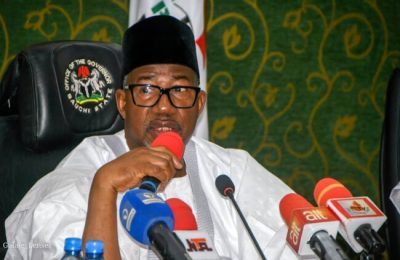
LATEST data from the Central Bank of Nigeria (CBN) has shown that gross external reserves lost $3.45 billion in 2022, due mainly to Nigeria’s inability to reap immensely from the oil price rally and other foreign exchange sources.
This signals an 8.5 percent decline in 12 months, and the steep decline in the gross reserves trend can be principally attributed to increasing pressure from the foreign exchange market and the low receipts from crude oil.

Nigeria’s official gross reserves kicked off the new year 2023 at $37.07 billion and still stay below the $40 billion mark in 12 months since early February 2022, when they printed $40.01 billion, defying all odds of climbing back up the ladder.
This is despite the positive rally in crude oil prices on the back of the Russian invasion of Ukraine. Thus, the data showed that the total reserves as of December 2022 could cover an average 8.4 months of merchandise imports on a balance of payments basis and a bit over six months when services are included (goods and services).
Analysts from Cowry Assets Management Limited said this is, however, more than the international standard of three months of import cover.
According to the firm, the unrest in Eastern Europe brought about a significant rise in the price of oil in 2022 to a record $120 per barrel, a development which benefitted some major producers with huge oil export earnings.
However, Nigeria’s major foreign exchange sources have, over the years, become prone to exogenous fluxes in the face of global economic evolutions in recent times.
It would be recalled that in November 2022, Godwin Emefiele, the CBN governor, at the annual bankers’ lecture held in Lagos, said that the huge decline in the external reserves still comes from Nigeria’s struggles with the Naira depreciation and the increased demand for foreign exchange.
He also said Nigeria’s foreign exchange receipts declined from $3 billion monthly in 2014 to absolutely zero dollars in 2022 as a result of declining foreign exchange inflows from crude oil sales.
Still, the currency situation, which has seen the Naira reach an all-time low, and the low capital inflow from the international market owing to capital controls by some central banks, have also continued to choke the accumulation of foreign reserves over the years.
This, according to the analysts, is evident with the rising debt levels across economies around the globe and the various policies to discourage capital flight in the wake of a looming recession.
Cowry Research thinks pressure on the gross official reserves would be on the increase, heading gradually into 2023, on the back of continued depreciation of the Naira against the greenback.
In 2022, the Naira lost almost nine percent of its value against the greenback despite the significant interest rate hikes by the US Federal Reserve.
According to the analysts, on the other hand, addressing the issues of crude oil theft and vandalism with efforts to increase production to a significant level (1.69 mbpd in the 2023 budget) can be a boost to petrodollar earnings for Nigeria and, in turn, improve its reserve levels.
ALSO READ FROM NIGERIAN TRIBUNE







